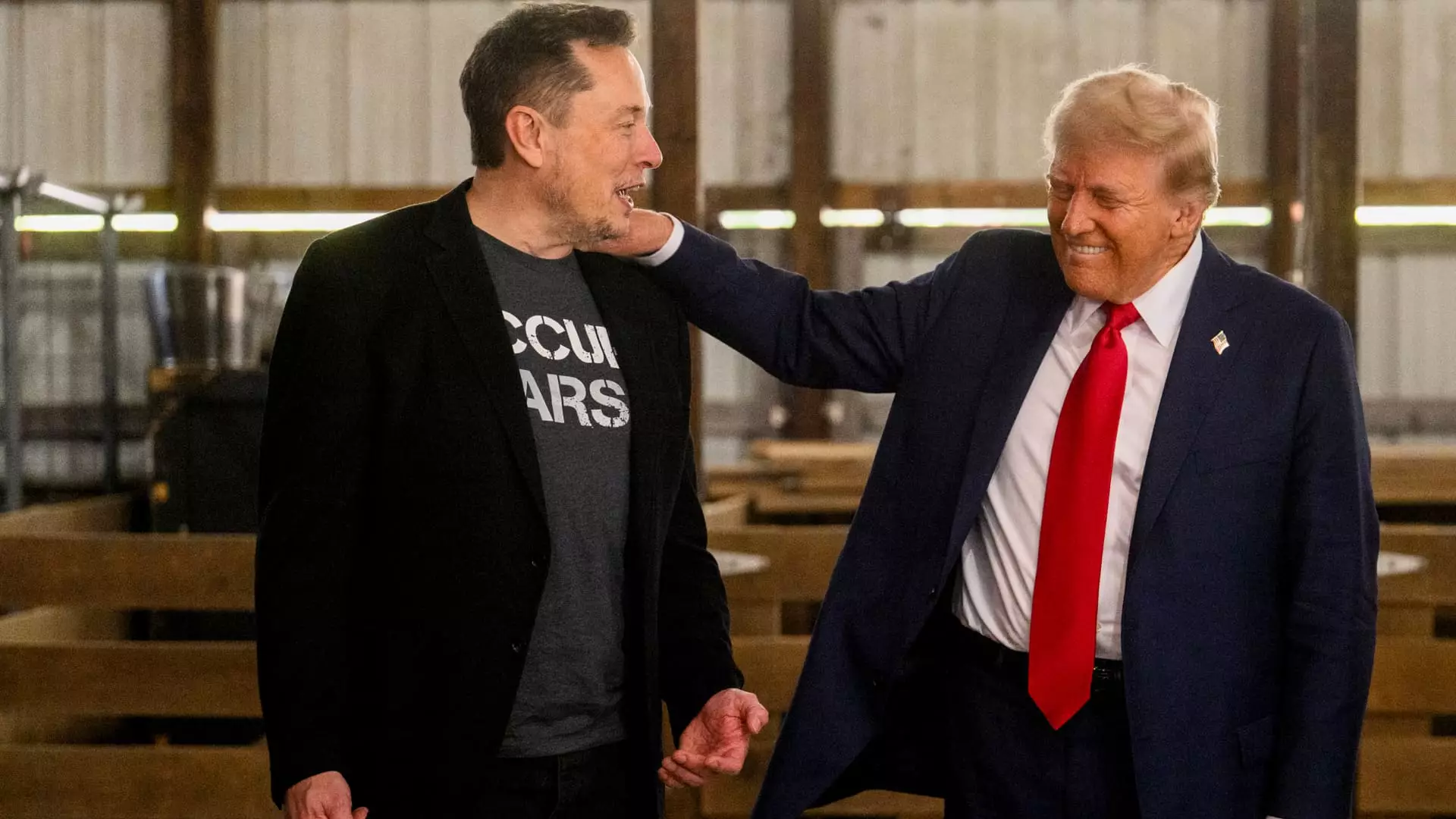In the intricate dance of American politics, alliances can be as crucial as policies themselves. The recent meeting of Elon Musk and then-President-elect Donald Trump serves as a notable example of how influential figures are forging connections that could reshape governmental landscapes. Musk, known primarily for his innovations with Tesla and SpaceX, has increasingly aligned himself with Trump, evident during their joint flight to Washington D.C. for a House Republican conference. This partnership is more than a mere coincidence; it highlights the intersection of technology, business, and politics in a rapidly changing environment.
Elon Musk’s meteoric rise to the forefront of both the business and political worlds illustrates a unique blending of interests. While traditionally entrepreneurs have remained on the edges of political discourse, Musk has established himself as a prominent player in shaping Republican agendas. His consistent presence alongside Trump during this transition phase indicates a desire not just for influence but also for shaping the trajectory of governmental reform. This reflects a broader trend where technology leaders are stepping into political roles, not only as advisors but as decision-makers.
Musk’s declaration that he and fellow entrepreneur Vivek Ramaswamy would spearhead the “Department of Government Efficiency” reveals ambitions to streamline bureaucracy and reduce regulations. This initiative aims to dismantle perceived inefficiencies in government operations, illustrating Musk’s commitment to applying his private sector strategies to public governance. His comments about sending “shockwaves through the system” underscore a rebellious sentiment toward established norms, demonstrating an audacious willingness to disrupt traditional governance structures.
Musk’s involvement raises pertinent questions about the implications of merging business acumen with public policy. On the one hand, his innovative mindset could lead to significant advancements in how government operates, potentially leading to more effective and responsive institutions. This is particularly relevant in a political environment characterized by polarization and stagnation. By emphasizing efficiency and cutting red tape, Musk positions himself as an agent of change, appealing to a base that thrives on anti-establishment rhetoric.
However, the consolidation of power among tech leaders in politics can also be troubling. There is a growing concern about the influence of wealthy individuals in shaping policies that impact everyday Americans. The challenge lies in balancing Musk’s desire for reform with the potential for corporate interests to overshadow public welfare. As Musk and Trump’s interactions escalate, it will be vital for the public to critically examine the motives behind their initiatives and the outcomes they produce.
Trump’s Political Landscape: Shifts and Challenges
The recent political climate indicates a shift towards a more entrenched Republican control, particularly following the November elections where the GOP succeeded in flipping seats from Democratic control. The assembly of influential figures like Musk within the Republican framework could significantly bolster Trump’s administration. With Mike Johnson anticipated to continue as Speaker of the House, the GOP’s consolidation of power presents an opportunity for them to enact ambitious policies shaped by Musk’s vision of efficiency.
However, Trump’s meeting with President Joe Biden marks a coalescing reality—one that highlights the challenges of governance spanning across party lines. Unlike the previous transition in 2020, this gesture signifies a willingness to collaborate, albeit under a backdrop of deep-seated political rivalries. Such moments are crucial for fostering trust and stability, but the effectiveness of these meetings remains contingent on the dialogues that ensue.
The Role of Media and Public Perception
Importantly, the media’s role in this narrative cannot be understated. The flow of information, complete with allegations of misinformation surrounding Musk’s connections, highlights the complexities of public relations within politics. As Musk engages with high-profile figures, the media serves as both a conduit for information and a critical lens through which public opinion is formed. This duality creates a dependent relationship, where the portrayal of individuals like Musk shapes their public persona and, consequently, their influence.
In retrospect, the evolving dynamics between business moguls and political figures necessitate a vigilant and informed public. As these alliances continue to form and reshape the political landscape, maintaining a critical eye on their implications will be key to understanding the future of governance in America. Musk’s integration into the political sphere exemplifies a new era where technology, governance, and entrepreneurial spirit converge, demanding attention and scrutiny from citizens and legislators alike.


Leave a Reply